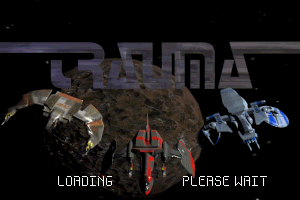

Thereon did his sire sacrifice yet living victims, Pelasgian captives and bridled steeds, a solace to his warlike valour upon them the towering flames quiver, and at last his father’s groans burst forth: “Ah! had not overmastering desire of noble praise possessed thee, my son, thou hadst been revered alike with me, ay, even ruled Echion’s city, but now thou embitterest my coming joys and the ungrateful burden of a realm. But Menoeceus is not suffered by Thebes or the king his father to burn upon a vulgar pyre, no heap of logs forms a common, customary mound, but a warlike pile of chariots and shields and all the weapons of the Greeks is raised on the massed trophies of the foe he himself like a conqueror is laid, his locks adorned with peace-bringing laurel and woollen fillets: just as when the Tirynthian, summoned by the stars, laid him down with joy on kindled Oeta. Nor does the cruel spirit of fierce Eteocles receive the honours of a prince his brother by command is held an Argive still, and his outlawed shade is driven away. For the third time Aurora strove with the Morning Star, and already the mountains are despoiled, and mighty trunks of Teumesus, the glory of the groves, and the timber of Cithaeron, friend of the funeral pyre, is come on high-wrought piles blaze the bodies of the ruined race: the Ogygian ghosts rejoice at the last tribute but the unburied troop of Greeks raise pitiable lament, and moaning flit about the forbidden fires. Nor return they to their homes, but sit all night about the corpses, and bewailing them by turns ward off the beasts by fires and sounds of woe nor did their eyes close yielding to the sweet influence of the stars, nor through constant weeping.

Already the daylight faded upon their tears, nor did late Vesper drive them away in their misery they love their lamentation and feast upon their sorrow. But those whose homes have suffered not, and who are spared all anguish, either stray around the deserted tents of the Danaans and set them afire, or – so far as they can after battle – search where lies the dust-bespattered Tydeus, whether the chasm of the ravished augur still be gaping, where is the enemy of the gods, and whether the heavenly embers still glow among his limbs. Often too were they deceived – Fortune mocking them awhile – and wept for foemen nor was it easy to tell what carnage to avoid and what to trample. But around the unsightly corpses a pitiable strife arises, who shall perform the rites and make their funeral. They sort out the cold heaps of slain: severed hands appear with lances and sword-hilts in their grip, and arrows fixed in eyes many find no traces of their dead, and rush about, with grief ever ready and on the verge.

Forth they go to the bloodless multitude and the remnants of the fallen host, wherever grief and indignation, blood-stained guides, impel them some behold the weapons, some the bodies, others but the faces of the slain, with strangers’ limbs near by some mourn their chariots, and address – all they can do – the widowed steeds others imprint kisses on gaping wounds, and bewail the valour of the dead. So when Idalian birds 2 have seen a tawny snake climbing the threshold of a conspicuous tower, they drive their little ones within and wall the nestling brood behind their talons, and stir their unwarlike wings to battle and though he soon retreat, yet the white flock fears the empty air, and when at last they venture flight they thrill with terror and still look back from the mid-vault of heaven. Scarce at first dare they to step forth and destroy the rampart works, scarce wholly to unbar the gates the old fears rise before them, and the dread of the deserted plain: just as to men long tossed on ocean earth heaves at first, so are they spellbound and amazed that nought assails them, and fancy that the slain hosts rise up again. Not yet had the wakeful dawn put all the stars to flight from heaven, and the moon was beholding the approach of day with facing horn, what time Tithonia 1 scatters the clouds in hurrying rout, and prepares the wide firmament for the return of Phoebus: already Dircean bands stray forth from their scanty dwellings, complaining of the tardy night although not till then had they rested, or gained their first sleep after battle, yet a troubled peace forbids repose, and victory still remembers the horrors of war. Theseus & Burial of the Dead THEBAID BOOK 12, TRANSLATED BY J.


 0 kommentar(er)
0 kommentar(er)
